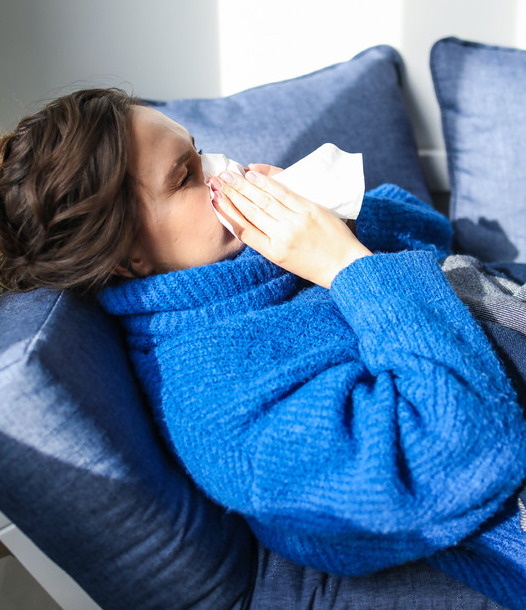Herbal Evidence
Does ginseng really boost your energy?
What does the current research tell us about how well ginseng treats fatigue?
Last updated: 2 June 2020
Fatigue

Possible reasons behind feeling tired or exhausted include physical or mental exertion, lack of sleep, excess or lack of physical activity, medication and alcohol use. Chronic fatigue, lasting at least 6 months, affects millions of people and may be a result of conditions and diseases, such as anaemia, depression and cancer. Both acute and chronic fatigue can hinder a person’s ability to carry out daily activities and negatively impact their well-being. In addition to addressing the lifestyle and any underlying conditions behind the feelings of fatigue, many people choose to try to relieve their fatigue with herbal medicine.
What is ginseng?

Ginseng is the root of the Panax plant and species include Korean Red ginseng (Panax ginseng) and American ginseng (Panax quinquefolium). It has a long history in east Asian traditional medicine and has been used to treat a variety of conditions. Its reported benefits include helping to treat sleep problems, impotence and diabetes. Today, powder extracts are often administered in capsules and it is still used in attempts to treat and prevent multiple conditions including fatigue.
Ginseng is a popular choice for treating fatigue and, being widely believed to boost energy levels, it is a common ingredient in energy drinks. Ginseng contains ginsenosides which are compounds that are believed to have antioxidant properties, as well as possible benefits to the immune, cardiovascular and central nervous systems. Formal clinical studies have been conducted to assess its possible efficacy for treating fatigue. Given that fatigue is subjective and difficult to measure, these studies rely on self-reports before and after the start of treatment to assess whether a participant’s fatigue severity improved. After a systematic review of the literature, Herbal Evidence currently contains the results of five randomised controlled trials.
Ginseng fatigue trials
In one study of adults aged between 18 and 60 years the participants were assigned to either 1800 or 3600mg of Korean Red Ginseng or placebo for 4 weeks (1). At the end of the treatment 80% of those who received ginseng achieved an alleviation of their fatigue symptoms compared with 56% of those who received placebo.
Trials have also been conducted in patients with cancer-related fatigue. The results of one study (2) suggested that patients assigned to 2000 mg of American ginseng for 8 weeks were more likely to experience at least a 30% improvement in their fatigue scores than the cancer patients assigned to placebo (30% versus 20%). However, another study of patients with cancer-related fatigue found no difference in the percentage of patients who achieved a clinically meaningful improvement in their fatigue scores between those who were assigned to 400mg of Korean Red Ginseng for 28 days and those who were assigned to placebo (3).
While ginseng is generally considered safe to use and adverse event rates were generally similar in the ginseng and placebo arms, some users of ginseng did report breast tenderness, uterine bleeding and nervousness.
Overall, the results of our meta-analysis suggest people given ginseng are more likely to see improvements in their fatigue and therefore benefit from ginseng compared with people given placebo. However, the current number of studies included is small and comprises fewer than 1000 people. Therefore, more well-conducted randomised controlled trials are needed to assess how well ginseng works in treating fatigue. Further studies will also be helpful in determining if dose, duration of treatment and species (for example, Korean versus American ginseng) make a difference to the efficacy of ginseng. In addition, further studies will enable the safety profile of ginseng to be better understood.
For information on all the studies included in the meta-analysis, go to the Ginseng page, select “Fatigue” as the condition and download the related PDF fact sheet. As always, consult your physician before adding new treatments to your regimen or changing any current medication.
References
1. Zhang, L. et al. Safety and
antifatigue effect of Korean Red Ginseng: a randomized, double-blind, and placebo-controlled clinical trial.
J Ginseng Res 43, 676–683 (2019).
2. Barton, D. L. et al. Wisconsin
Ginseng (Panax quinquefolius) to improve cancer-related fatigue: a randomized, double-blind trial,
N07C2. J. Natl. Cancer Inst. 105, 1230–1238 (2013).
3. Yennurajalingam, S.
et al. A Double-Blind, Randomized, Placebo-Controlled Trial of Panax Ginseng for Cancer-Related Fatigue in
Patients With Advanced Cancer. J Natl Compr Canc Netw 15, 1111–1120 (2017).



